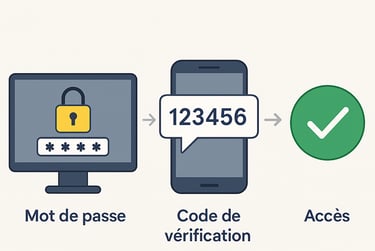These TikTok videos are tricking users into installing Malware — and how to use AI safely
Some viral TikTok videos are pushing people to install malware disguised as AI tools. Learn how to protect yourself and discover smart, secure ways to use AI at home and in your business.
EN - AIEN - SOCIAL MEDIA
Quebec Test
5/26/20253 min read


TikTok has become one of the world’s most influential social platforms. With its short and captivating content, it attracts millions of users daily. But behind some appealing tech hacks or tutorials lie very real traps.
A recent article by Emily Long on Lifehacker highlights a growing concern: certain TikTok videos are encouraging users to download dangerous software, promising “AI-powered” features or “free tools” to boost your phone or PC.
The result? Malware, stolen data, or even full control of your device by cybercriminals.
Common TikTok Scams: When “AI” Becomes the Bait
Here are some examples of fraudulent content currently circulating on TikTok:
"Unlock unlimited ChatGPT for free" → redirects to a shady website.
"This AI site makes you money while you sleep" → requests access to your crypto wallet.
"Boost your brain with this AI app (free APK)" → infected APK file pretending to be useful.
What do they all have in common?
Irresistible promises, fast-paced videos, and a call to download outside official stores like Google Play or the App Store.
How to Avoid Getting Scammed
1. Always verify the source
Never install an app from a TikTok link without checking the official website. Stick to trusted platforms like Google Play, Apple’s App Store, or Samsung’s Galaxy Store.
2. Turn on Two-Factor Authentication (2FA)
2FA is a simple but powerful security layer that protects your accounts.
How does it work?
You enter your usual password.
Then, you verify your identity using a second step, like:
a temporary code via SMS or email
an authenticator app (Google or Microsoft Authenticator)
or biometric data like a fingerprint or facial recognition
Even if someone knows your password, they can’t log in without this second factor. It’s essential for sensitive accounts like email, banking, or social media.
3. Review app permissions
If an AI tool asks for access to your SMS, microphone, or camera without clear justification — it’s a red flag.
4. Use a reliable antivirus
Tools like Bitdefender, Malwarebytes, or Avast can detect threats, even from fake AI apps.
✅ How to Use AI Safely — for Personal Growth
AI can be a powerful tool in your everyday life. Here are a few safe and smart ways to use it:
1. Organize your life
Use tools like Microsoft Copilot or Notion AI to manage tasks, take smart notes, and plan your days.
2. Learn faster
With ChatGPT, summarize books, generate revision quizzes, or learn new languages more efficiently.
3. Manage your finances
Use ChatGPT, Excel AI, or YNAB to automate your budget, track spending, and save money.
🏢 How Businesses Can Use AI — Safely and Strategically
AI isn’t just for automation — it’s a business transformation engine when used wisely.
1. Automate repetitive tasks
With Power Automate, Zapier, or Make, streamline emails, file management, or customer responses.
2. Boost customer service
Deploy a 24/7 AI chatbot using the ChatGPT API.
3. Enable predictive analytics
Use Power BI with AI modules to detect sales trends, manage inventory, and optimize resources.
4. Govern AI use internally
Set up a clear AI governance policy to manage privacy, cybersecurity, staff training, and source validation.
🔚 Conclusion: Use AI — But Never at the Cost of Security
Artificial intelligence can be a powerful force for innovation when used wisely. But with the rise of deceptive AI-related content on platforms like TikTok, digital vigilance is more important than ever.
Whether you’re a personal user or running a business, stay smart:
Use trusted tools
Educate yourself
And never trust a shortcut promising “magic” AI powers for free
🔗 Useful Sources:


